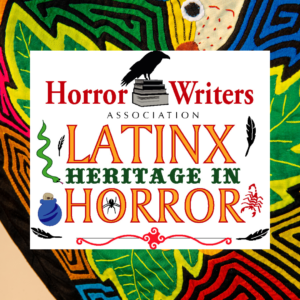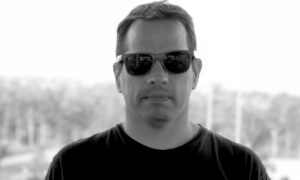
 ADVERTISING
ADVERTISING
More than 20 years in the advertising market, Andre has edited over 8,000 TV ads for major brands in Brazil, such as Nike, Unilever, Peugeot, Ford, and Via Varejo.. He also edited TV shows for Discovery Channel, GNT, and Bandeirantes Channel.
Nowadays he also works as a Post Production Director attending accounts which are the biggest ones in South America.
FEATURE FILMS
In 2012, Andre was invited to be the Associate Producer and Editor of the North American documentary “Making Light in Terezin”, shot in Prague, New York, and Los Angeles.
In 2016, he edited the feature film “Attachments”, shot in Los Angeles. Two Oscar nominees are in the film, Katharine Ross and Joseph Bologna.
SHORT FILMS
He is a scene director and screenwriter of many horror and thriller short films. His last two shorts Red and Sadness were finalists in several international film festivals, such as NYC Horror Film Festival, Buried Alive Film Fest, Freak Show Film Fest, and Shriekfest, the most important horror festival in Los Angeles according to LA’s Weekly.
BOOKS
Read all about Andre Schuck’s books on his website.
What inspired you to start writing?
Since I was a child, I have been in love with stories. During my adolescence, I began to feel the need to put ideas on paper. And as my favorite genre has always been horror, I believe the choice for this genre was a continuity of what I was already consuming. Nowadays, I realize that through horror and suspense, I also write to deal with and put out some feelings and apprehensions. Some articles about my stories have pointed out a great connection with the theme of fatherhood. What I believe had happened in a non-conscious way to deal with the fact that I am the father of two girls.
What was it about the horror genre that drew you to it?
My mother loved horror movies, and I watched with her, of course, scared to death, but firm to seeing everything until the end.
The genre has always attracted me because it tells stories that besides awakening a great adrenaline charge in me and keeping it for a long time influenced by the story, good horror books always have a story behind them that deal with real problems of everyday life. Most of the time, the biggest monster is the human being. Even if there is an evil entity, for example, stalking someone, the characters often make decisions that are colder and more gruesome than the entity. And unlike other genres, in horror, not always a happy ending is expected by the public, who accepts a more real and macabre ending, as, unfortunately, life often is.
Do you make a conscious effort to include LatinX characters and themes in your writing and if so, what do you want to portray?
I believe it occurs naturally to me. In my books, there are also characters from other cultures and always the biggest points that I develop in them are: what makes this character special, how his culture influences his decisions, and how he sees the world. When I put characters from different cultures interacting as I did in my book Revenge, the most fun and challenging point are how one sees the other and understands their decisions.
What has writing horror taught you about the world and yourself?
That nothing is guaranteed and the world is much darker than we would like it to be, so enjoy the small and big happiness. But at the same time, we have to believe in our own strength to deal with all kinds of evil around us. And, of course, I’d like to quote Stephen King’s quote that sums up a lot of what I think about the genre and humanity: “Monsters are real, ghosts are real too. They live inside us, and sometimes they win.”
How have you seen the horror genre change over the years? And how do you think it will continue to evolve?
Horror has always represented the fears of certain times. The genre is an accurate portrayal of what society is going through at the time. So the horrors that the characters face change, but the essence, which is about making the right decisions or not and the desire to survive, remains. This occurs in all cultures, each with its own way of seeing the world.
I have noticed, fortunately, that many books have dealt with internal and invisible fears in everyday life. Such as anxiety and depression. Which are our own inner demons and our eternal struggle against them. It’s like drowning on the beach, screaming, and no one hearing your voice. This is something that the horror genre has very strong and that no other can overcome.
How do you feel the LatinX community has been represented thus far in the genre and what hopes do you have for representation in the genre going forward?
Fortunately, many stereotypes about the community have fallen away and real characters have emerged. This is already a great evolution when non-Latino authors create characters. This look at the reality of each culture elevates the author and his entire work. With some latino authors becoming more and more successful, new authors will emerge showing new aspects of the culture and the great talent of each one. We are in a time when new technologies help authors to reach their niches and from there go out to a bigger network of readers.
Who are some of your favorite LatinX characters in horror?
Since we are talking about Latino characters, the first ones that come to mind are Guillermo del Toro’s creations. There are many of them and they are among my favorites. Not only the ones in the books, but especially the ones in the films. I believe he manages to bring a lot of the Latin culture naturally without basing it on dogmas or fears. Guillermo is an incredible artist who permeates through different media and ways of telling stories. And without a doubt, his commitment to Latin culture combined with his success and awareness helps other Latin authors and artists break down barriers.
Who are some LatinX horror authors you recommend our audience check out?
I will take the opportunity to talk a little about Brazilian authors, I read the latest book by the writer Marcos de Brito. He wrote a very interesting book called The Apocalypse According to Faust. He draws a parallel between people’s faith and the pure terror of an actor who begins to transform himself into his most famous character. We have many other Brazilian authors who dedicate themselves to horror and do it brilliantly. Two main factors hold back Brazilian authors of the genre to take flights outside the country in Latin countries, the first is that our domestic market is small and gives little visibility, the second and our language is Portuguese, which demands a high cost, here always from the author, to translate their stories and have them shown to foreign publishers.
What is one piece of advice you would give horror authors today?
Don’t stop. As difficult and often frustrating as the market may seem, if writing is in you and brings you joy, simply don’t stop. Don’t do it for vanity, write because you love and believe in your stories.
And to the LatinX writers out there who are just getting started, what advice would you give them?
Study. Write. Don’t worry about what’s fashionable. Write about what scares you. Write. Read other genres of literature. Don’t give up. Have fun writing. Don’t try to sound like this writer or that writer, find your voice. Don’t wait for the perfect time to work on your book. A paragraph written on the day is much better than none at all. And, if I forgot to advise, write.


Amazing interview!